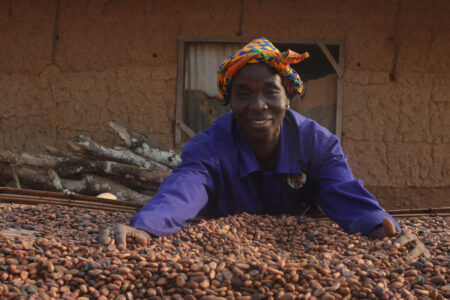Forging sustainable confectionery packaging set for core focus at ProSweets 2024

prosweets 2023 was a shortened edition in Cologne, but will be back at full strength for 2024. Pic: Neill Barston
The effective delivery of sustainably packaged confectionery ranges for the international sector is to form a core topic for the fast-approaching ProSweets event in Cologne, Germany, writes, Neill Barston.
As the event’s organisers, Koelnmesse noted, manufacturers in the chocolate, biscuit and sweets markets are now more aware than ever that strengthened environmental polices around the world, as well as consumer demand, have driven the need for finding more eco-friendly materials for product series, which has already prompted a response from major brands.
During the past year, Confectionery Production has reported on major initiatives from the likes of Nestle, Mars and Mondelez on improvement to their respective packaging operations, aiming to positively impact on their environmental performance.
Therefore, as ProSweets organisers have observed, it is now of key importance that packaging systems implemented display the necessary flexibility and process capability to meet the market’s needs. The event in Cologne, being staged between 28-31 January alongside sister finished product show, ISM, is set to explore this major issue in full detail.
Confectionery Production was on hand to cover this year’s ProSweets event, which took places amid a backdrop of notable supply chain challenges of increased energy costs that resulted in the show being put back until April 2023, with ProSweets exhibitors appearing in a shorter version show, located in the venue’s Boulevard (see main image).
However, equipment, systems and ingredients businesses that have been at the heart of the event, will return to the previous location within the site at Hall 10.1, with a total of nearly 250 exhibitors listed at the time of going to press.

Hacos chocolate machinery was among exhibitors at this year’s event. Pic: Neill Barston
One of the major trends that is continuing is a move away from plastic for packaging, with paper or cardboard are being used instead. There will be many examples of this during the Sweet Week at the Cologne fair grounds, especially in the halls of the co-staged ISM, the world’s largest trade fair for sweets and snacks.
As a duo, ISM and ProSweets Cologne, represent the entire industrial value chain of the international sweets and snacks industry. Increasing the recyclability and reducing the weight of the packaging are important aspects that are at the top of the agenda of the sweets industry. During the Sweet Week the industry’s most important producers, suppliers and decision-makers all engage in an exchange in one location at the same time – to bring about synergies in the areas of networking, knowledge transfer and business.
Recyclable and functional alternatives
“We very much welcome the consumers’ increased awareness for sustainability,” confirmed Prof. Dr. Markus Schmid. “This awareness leads to a heightened interest in environmentally-friendly packaging. However, it is important that well-founded decisions are taken concerning the choice of material. We often see that well-intended initiatives lead to hasty solutions without their functional restrictions and the actual ecological footprint being taken into full consideration. In our work at the Sustainable Packing Institute (SPI) at the Albstadt-Sigmaringen University we strive to develop holistic solutions that are both functional and sustainable. Our aim is to improve the life cycle assessment of bio -based plastics, ie by using residual plant matter and thus being able to offer really more sustainable packaging materials.” The recent successes achieved in current and completed projects will be presented interactively in the scope of the Sustainable Packaging Special Show in Hall 10.1 during ProSweets Cologne.
Peter Désilets, Chief Operating Officer of Pacoon Sustainability Concepts GmbH, knows which materials and technical innovations promote the change process. Whether for jelly items, toffee, caramel or bonbons: While the consumers are pleased about the huge variety at the point of sale, the sweets and snacks manufacturers have to find the right interplay between packaging material and the packaging technology for their products. Materials that display the best possible machinability from the start are the prerequisite for this,” according to the expert. Especially in the concept phase of a new machine there is a lot of scope for designing the packaging with sustainability in mind. Fibre-based packaging is a preferred and in many respects forward-looking option for Désilets: “As a contact person for the companies we are presenting among others selected samples of fibre-based packaging at the Sustainable Packaging Special Show.”
The trend towards paper-based packaging and monomaterials made from plastic is clearly noticeable among the machine builders who are exhibiting at the fair grounds in Cologne. They are supporting the producers in switching over to recyclable alternatives with innovative technologies that enable more economical cuts, improved material utilisation and optimised formats.
Solutions that are found at ProSweets Cologne also guarantee perfectly sealed packaging in the case of very thin films made of polypropylene or polyethylene. In this way, stand-up pouches for snacks can be recycled as a true “single material solution”. Schubert offers its customers more flexibility for transverse sealing with the box motion unit in the Flowpacker, for example. The ultrasonic method makes it possible to seal more hermetically overall because the seam displays a consistent high quality across the entire width. Thick films that require longer sealing times can be easily processed as well as recyclable tubular bags made from monofilms or paper-based films.

The Walter stand at this year’s show drew strong global interest. Pic: Neill Barston
As event organisers noted, sustainable materials can be processed in many other machines – what’s more with full format flexibility. An example of this is the Kliklok ACE by Syntegon. The carton erector folds paper trays without glue and thus enables conventional plastic trays to be replaced by paper-based materials. Furthermore, sustainable packaging is demonstrated in concrete form by the FPC5 of Theegarten Pactec.
The modular packaging machine for the production of bars in a tubular bag has been further developed so that paper-based packaging can be processed: On the one hand using a conventional cold seal process, but on the other hand also using a much more complex heat sealing process. The machine has a capacity of 90 meters per minute for paper-based packaging. That corresponds to 600 larger 40-gram bars of chocolate per minute. And Loesch’s LTM-DUO fold wrapping machine is both flexible regarding the choice of format and the packaging material: From smaller bars through to 300-gram bars, from biofilm, to monofilm and composite material, through to aluminum foil, everything can be processed unproblematically . The outer wrapper of the bar of chocolate can be designed as a paper label from the stack or reel or also as a carton label. The examples show how the machine builders unite the topics sustainability and process integration with one other. Further more event detail, visit prosweets.com



